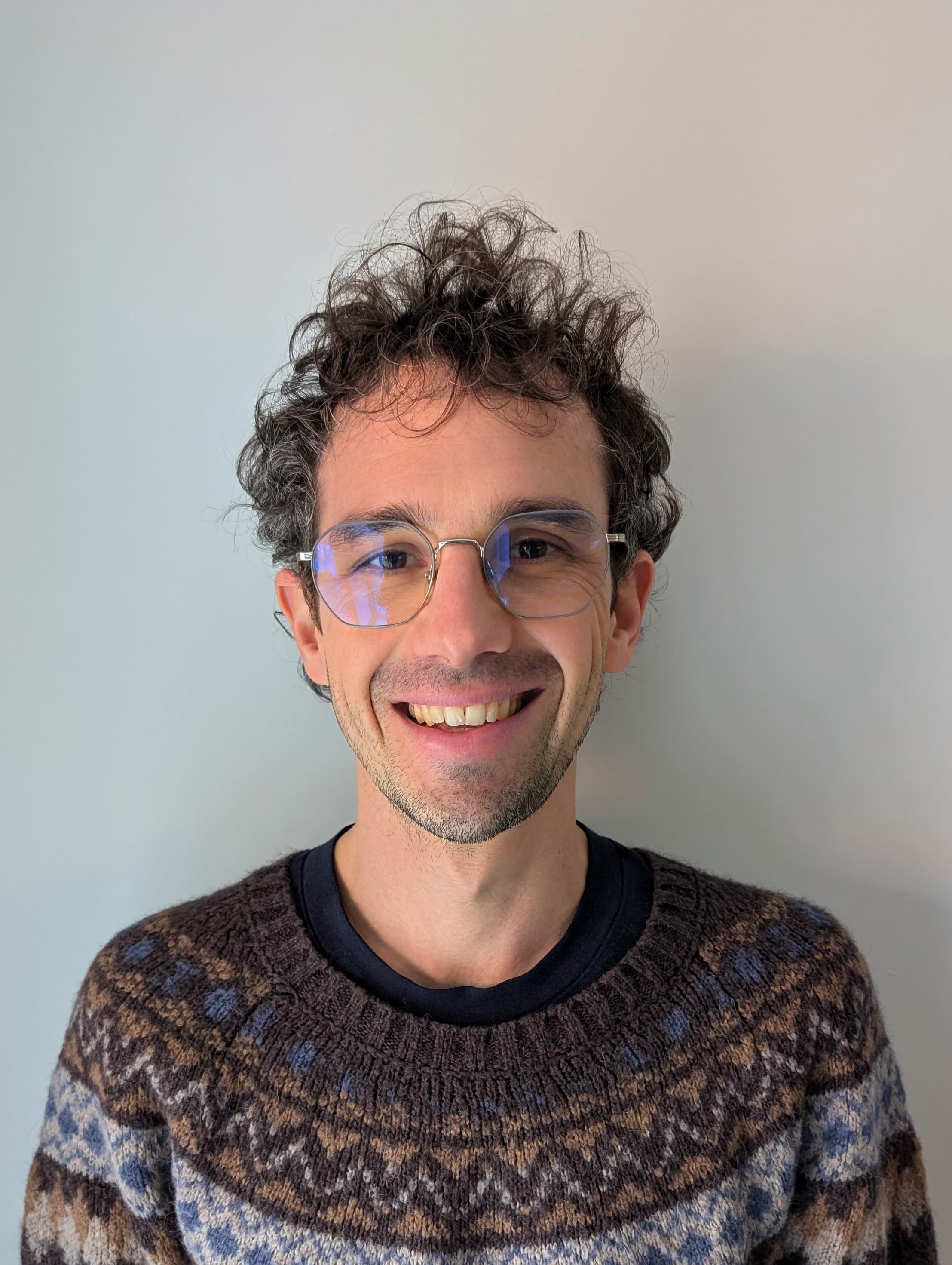

I’m a Leverhulme Early Career Research Fellow at the University of Nottingham (UK), in the Condensed Matter Theory group led by Juan P. Garrahan.
Research: I develop theory and tools to understand—and exploit—fluctuations and rare events in self-interacting stochastic systems. My goal is to turn rare events into a resource for learning and control, designing reinforcement-learning strategies that are enhanced by `extremes' rather than hindered by them.
Previously, I was a postdoctoral researcher in the same group at the University of Nottingham, and before that a postdoctoral fellow at Nordita (Stockholm) in the group led by John S. Wettlaufer. I received my PhD in October 2021 from Queen Mary University of London, working on large deviations with Rosemary J. Harris.
I’m fascinated by random systems and structures—especially how noise and chaos can lead into rare, ordered patterns—and I love stochastic modelling. Lately, my work focuses on the interplay of stochasticity, memory, and reinforcement, with the aim of turning rare events into usable signal for learning and control.
Here are a few keywords related to my research and extra-academic interests:
I like bikepacking, swimming, kneading, crime board games, reading and spending time with friends.
arXiv:2601.07943
arXiv:2510.14659
J. Stat. Phys. 192, 128 (2025)
J. Stat. Mech. Theory Exp. (2025) 103202
J. Stat. Mech. Theory Exp. (2025) 063203
J. Phys. A: Math. Theor. 58 015002
Phys. Rev. Research 6, 013077 (2024)
Phys. Rev. E 109, 064128 (2024)
Phys. Rev. Lett. 133, 107401 (2024)
J. Stat. Mech. Theory Exp. (2023) 063201
Phys. Rev. E 107 (2023) 034137
Phys. Rev. E 107 (2023) 024126
J. Phys. A Math. Theor. 55 295001 (2022)
J. Stat. Phys. 179, 131–154 (2020)
Phys. Rev. E 98.6 (2018): 062317
September 2021
3-year research funding.
High-quality project proposal (94.6%) in a highly competitive evaluation process
Awarded with SEK 50000 from the Blanceflor Foundation in support of research work.
Awarded with SEK 80000 for the organisation of the workshop on ‘Fluctuations and First-Passage Time Problems’ held at Nordita.
Awarded with £1000 from the School of Mathematical Sciences at QMUL, towards the forthcoming trip to the University of Stellenbosch, SA.
Awarded with £1000 from Queen Mary University of London, towards the forthcoming trip to the University of Stellenbosch, SA.
Awarded with £500 from the Institute of Mathematics and its Applications, for the forthcoming trip to the Laboratoire J. A. Dieudonné in Nice, FR.
Participant of Data Study Group at Turing Institute
Project: Forecasting quarterly macroeconomic indicators (e.g., unemployment rates) using ONS data combined with high-frequency job postings.
Code (only ONS data)Awarded Leverhulme Early Career Fellowship
Project: Rare event-driven learning: from chemotaxis to reinforcement strategies. (3 years research funding)